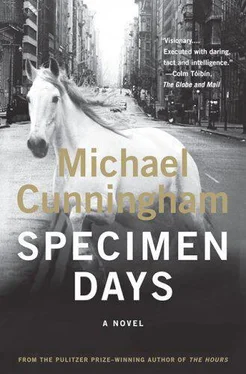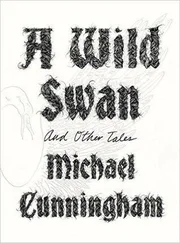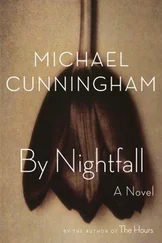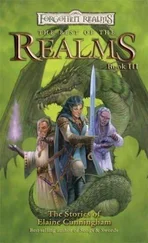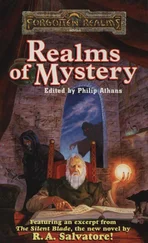Michael Cunningham - Specimen Days
Здесь есть возможность читать онлайн «Michael Cunningham - Specimen Days» — ознакомительный отрывок электронной книги совершенно бесплатно, а после прочтения отрывка купить полную версию. В некоторых случаях можно слушать аудио, скачать через торрент в формате fb2 и присутствует краткое содержание. Город: New York, Год выпуска: 2005, ISBN: 2005, Издательство: Farrar, Straus and Giroux, Жанр: Современная проза, на английском языке. Описание произведения, (предисловие) а так же отзывы посетителей доступны на портале библиотеки ЛибКат.
- Название:Specimen Days
- Автор:
- Издательство:Farrar, Straus and Giroux
- Жанр:
- Год:2005
- Город:New York
- ISBN:0-374-70515-1
- Рейтинг книги:4 / 5. Голосов: 1
-
Избранное:Добавить в избранное
- Отзывы:
-
Ваша оценка:
- 80
- 1
- 2
- 3
- 4
- 5
Specimen Days: краткое содержание, описание и аннотация
Предлагаем к чтению аннотацию, описание, краткое содержание или предисловие (зависит от того, что написал сам автор книги «Specimen Days»). Если вы не нашли необходимую информацию о книге — напишите в комментариях, мы постараемся отыскать её.
Specimen Days — читать онлайн ознакомительный отрывок
Ниже представлен текст книги, разбитый по страницам. Система сохранения места последней прочитанной страницы, позволяет с удобством читать онлайн бесплатно книгу «Specimen Days», без необходимости каждый раз заново искать на чём Вы остановились. Поставьте закладку, и сможете в любой момент перейти на страницу, на которой закончили чтение.
Интервал:
Закладка:
“I’ve found you, sir.”
Walt drew up more laughter from the earth. Lucas felt it throughout his body. Walt said, “I’m hardly precious, my boy. I’m an old servant, is all I am. I’m a vagrant and a mischief-maker. Do you know what I think?”
“What, sir?”
“I think you should walk far and wide. I think you should search Broadway and beyond. I think you should search the entire world.”
“That would be hard for me, sir.”
“Not all at once, not in a single night. I suspect you’re something of a poet yourself. I suspect you’ll spend your life searching.”
Lucas’s heart caught. He needed the money now. He said, “Oh, I hope not, sir.”
“You’ll see, you’ll see. The search is also the object. Do you know what I mean by that?”
“No, sir.”
“You will, I think. When you’re older, you will.”
“I need, sir-”
“What do you need?”
“I need to know which way to go.”
“Go where your heart bids you.”
“My heart is defective, sir.”
“It’s not in the least defective. You can believe me on that account.”
Lucas flinched. He thought he might weep. He hoped Walt couldn’t see the tears rising in his face.
Walt said softly, “Would you like me to give you a direction?”
“Oh, yes, sir. Please.”
“All right, then. Go north. Go up to the edges of the city and beyond. Go see where the buildings diminish and the grass begins.”
“Should I?”
“It’s as good a way as any. If you want instructions, I give them to you. I hereby tell you to walk north.”
“Thank you, sir.”
“Will you come here tomorrow?” Walt asked. “Will you meet me here at the same time tomorrow night and tell me what you’ve found?”
“Yes, sir. If you’d like.”
“I’d like it very much. I don’t meet someone like you every day.”
Lucas said, “Achild said”
Walt joined him, and they spoke together. They said, “ What is the grass? fetching it to me with full hands; how could I answer the child? I do not know what it is any more than he.”
“Good night, sir.”
“Good night, Lucas. I hope you’ll come back tomorrow. I’ll be here, waiting.”
“Thank you, sir.”
Lucas turned and walked away. He went north, as Walt had told him to. He strode up Broadway, past the stores and hotels. Presently he turned and saw that Walt stood watching him. Lucas raised his hand in salute. Walt returned the gesture.
He had gone looking for money and found Walt instead. Walt had sent him north.
Lucas continued up Broadway. He went past Union Square and farther, until the grand buildings dwindled and there were fewer and fewer people, until fields spread out around him, lit here and there by the lights of farmers’ cottages and more brightly by the windows of important houses, houses of brick and limestone, that stood proudly in the flatness and quiet. He passed like a ghost along the road, which was sometimes paved and sometimes not. He passed a house of particular grandeur, with a stone front and a white portico. He saw within (they did not draw their curtains, so far away) a regal woman in a white gown, lifting a goblet of ruby wine, standing before a portrait of herself in the same gown. A man came and stood beside her, a man in a waistcoat. His chin came to a sharp point no, his beard was the color of his skin, and the hair on his head was the color of his skin. Lucas thought the man would appear in the portrait, too, but he did not. The man spoke to the woman, who laughed and gave him her goblet to drink from. In the portrait, she continued looking out serenely.
Lucas watched them. The dead might be present and absent like this, in the world but not of the world. The dead might wander as Lucas wandered, past the windows of strangers, looking in at a woman and a picture of a woman.
He left the man and the woman and the woman’s picture. He passed other houses. Through another window he saw the crown of a chair and a framed mirror that showed him the crystal drippings of a chandelier. He saw a farmer’s wife pass out of her door and pause, gathering her shawl. He saw an opossum that walked as he did, along the road. The opossum went alongside him with her quick, humping gait, unafraid, like a companion, for fifty or more paces, then slipped away, pausing to show him the pale, articulate line of her tail.
Lucas went as far as Fifty-ninth Street, and stopped before the gates of the Central Park. He had heard about the park but had never been there before. Behind the low stone wall were trees and blackness and the sound trees made. He lingered outside, and then, hesitantly, as if he might be trespassing, he went in.
The park was faintly lit near the gates, by the streetlamps of Fifty-ninth Street, but beyond that it rolled on into deep shadow. Here by the entrance were grass and the trunks of the nearest trees, which were small, newly planted. They might have been men transformed into trees, lifting their wooden arms, displaying the leaves that had burst forth from their slowed and altered flesh. Farther in, the grass went from bright green to deep jade, and the trunks of the remoter trees were pewter, then iron, then black. Beyond the jade-black grass and the black trees it was pure dark, as if the entrance to the park were a ring of forest that surrounded a lake of black, filled with the rustle of leaves and an unnameable, underlying sound that must have been insects and something else. Beyond the visible woods lay the sound of some limitless attention.
Lucas wondered if this might be where the dead resided, the dead who were not caught up in machinery. Here was grass, here were trees. Here was a rustling, alert silence far from the world of the living, with its lights and its music, its windows full of goods. Lucas gathered his courage and went forward, as he might have dived into water of uncertain depth and coldness, water that might or might not harbor fish and creatures that were not fish but lived in water, creatures that would be eyes and teeth and sudden movement. He had never seen such dark. It was never so, not even in the bedroom with the lamp extinguished, not even when he closed his eyes.
The park as Lucas walked into it, however, was not as dark as it had appeared. It was not pitch-dark. The grass beneath his feet was impenetrably black but steady; the trees were black but lesser black, their shapes discernible against a field of blackness. He felt as if he carried with him some faint illumination, a candle that was his own seeing and hearing, his human presence.
Something was here, among the trees. It deepened as he walked into it.
Presently he arrived at a stone balustrade, with a broad, curving staircase descending on either end. He went down the stairs. And there, in the middle of a dark plaza, stood an enormous figure. It spread its wings, touched faintly by moonglow. Its face was canted down, toward Lucas. It seemed for a moment that he had found the park’s avenging mother, the entity that waited, watching and listening, that had dreamed the park into being and did not like to have its sleep interrupted. Lucas trembled. He made as if to turn and run, though he thought that if he did, the figure would stir its wings, take flight, and snatch him up as easily as a terrier takes a rat.
In another moment, he understood that it was a statue, only a statue. He drew nearer. It was a stone angel, standing on a pedestal above an immense stone bowl of water. He saw that the angel was severe and contemplative, that she had blank and sorrowful eyes, that she had turned from heaven and looked down at the earth.
He looked up. There, beyond the angel’s arm, were the stars.
He had reached the heart of the park, and what the angel guarded what she had wanted to show him, what Walt had sent him to find was stars. Then he understood that here, so far from the city proper, the smoke was dispersed, and the stars were visible. He nearly lost his balance, looking up. The stars sparked, brilliant and unsteady on a field of ebony. There were thousands of them.
Читать дальшеИнтервал:
Закладка:
Похожие книги на «Specimen Days»
Представляем Вашему вниманию похожие книги на «Specimen Days» списком для выбора. Мы отобрали схожую по названию и смыслу литературу в надежде предоставить читателям больше вариантов отыскать новые, интересные, ещё непрочитанные произведения.
Обсуждение, отзывы о книге «Specimen Days» и просто собственные мнения читателей. Оставьте ваши комментарии, напишите, что Вы думаете о произведении, его смысле или главных героях. Укажите что конкретно понравилось, а что нет, и почему Вы так считаете.
